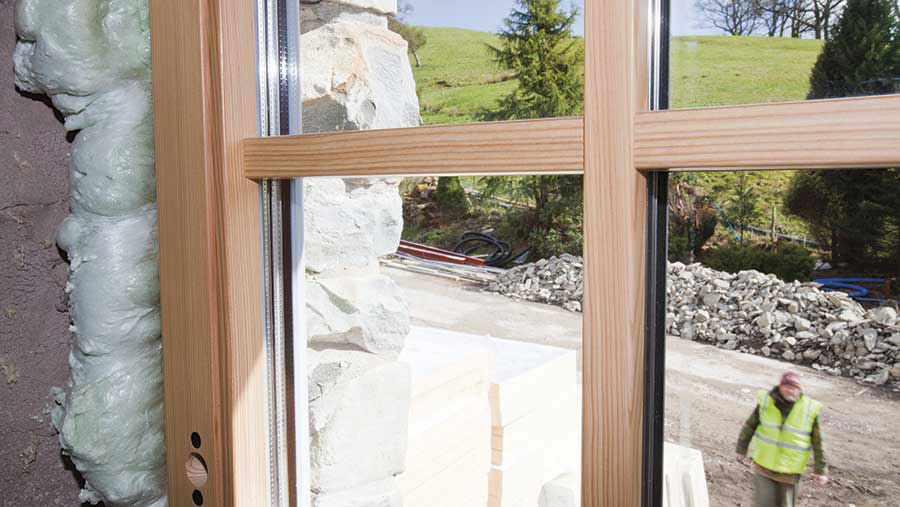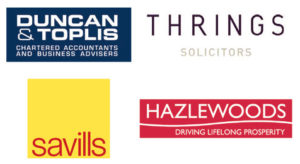Business Clinic: What VAT applies to holiday let conversion?
 © Global Warming Images/REX/Shutterstock
© Global Warming Images/REX/Shutterstock Whether you have a legal, tax, insurance, management or land issue, Farmers Weekly’s Business Clinic experts can help.
Here, Mark Chatterton of accountant Duncan & Toplis advises on the VAT treatment of work to create a holiday let barn conversion.
Q My wife and I are converting a disused Grade II curtilage listed barn into a holiday let. We are struggling with the correct VAT category for the project – listed barn conversion, conversion to a holiday let, new build and so on.
A builder did the bulk of the heavy structural work, charging VAT at 5%. He seemed unsure about this but took advice from his accountant.
Over the past year, we have done the rest of the conversion on a DIY basis and have spent a considerable amount on goods, services and materials for the barn, paying VAT at 20%.
What should the vat rate be on our project – 0%, 5% or 20%?
Second, can we claim back the VAT we have paid on the DIY part of the project using the appropriate form and at what rate?
We are not VAT registered and do not wish to charge VAT on the holiday let fees.
The building has been signed off by the building inspector this week and I understand we have three months to make a VAT claim.
A VAT relating to the construction and renovation of buildings is a complex area and will vary depending on the individual circumstances of what is being built or converted and its intended purpose.
 Mark Chatterton
Mark ChattertonDirector, Duncan & Toplis
See also: Must we pay extra stamp duty on house for our daughter
A key term in the legislation is “dwelling” which does not have an exact definition for VAT purposes.
There are factors to consider in deciding whether the building in question would indeed be a dwelling.
If the conversion is providing accommodation for one let at a time, or has no shared facilities then it seems very likely it will meet the conditions.
The use of a dwelling as a holiday home does not affect the liability of the construction services – it is the physical characteristics of the property that are relevant rather than its intended use.
Reduced rate
The reduced rate of 5% charged by the builder certainly seems appropriate based on it being a conversion of a non-residential building into a dwelling, and he has only carried out structural work.
The reduced rate will not apply to work on any internal fittings such as carpets or fitted furniture, landscaping or professional services such as architect fees.
No certificate is required, the builder just needs to be satisfied the conditions have been met, so may require documents for their records such as a copy of the planning permission.
Further details can be seen online under HMRC VAT Notice 708.
When acquiring goods and materials from builders’ merchants, the supply will be subject to the standard rate of VAT regardless of the building project.
Only when these materials are acquired by a builder who then incorporates them into the building project can the VAT treatment follow the VAT rate of the building at the reduced rate.
Purchasing goods and carrying out work yourself will not qualify for any reduced rating.
There is a DIY housebuilders scheme (which needs submitting to HMRC within three months of completion and planning regulation sign off) where VAT can be reclaimed but this is restricted to a home for you to live or holiday in and the building cannot be used for business purposes.
As the intended use is that of a holiday let, the DIY scheme would not be available to you.
VAT registration
There is another option to obtain a refund on the VAT element of the build but it would involve a VAT registration.
Registering as a trader of holiday lettings is one route, and VAT on future expenses of running the business could also be reclaimed in addition to the conversion costs, but this also requires VAT to be charged on the letting fees which is not the preference here.
It should also be noted taxable turnover of £85,000 or more is the point at which registration is compulsory and this includes the turnover of all businesses run in your joint names.
If, therefore, you already had a VAT registered business in joint names with your wife, you would be obliged to charge VAT on the holiday lettings and report this in the VAT return.
Due to the complexity of VAT on land, buildings and construction, it is always recommended that you seek professional advice prior to any major projects in order to plan for tax efficiencies.
Do you have a question for the panel?
 Outline your legal, tax, finance, insurance or farm management question in no more than 350 words and Farmers Weekly will put it to a member of the panel. Please give as much information as possible.
Outline your legal, tax, finance, insurance or farm management question in no more than 350 words and Farmers Weekly will put it to a member of the panel. Please give as much information as possible.
Send your enquiry to Business Clinic, Farmers Weekly, RBI, Quadrant House, The Quadrant, Sutton, Surrey SM2 5AS.
You can also email your question to fwbusinessclinic@rbi.co.uk.
